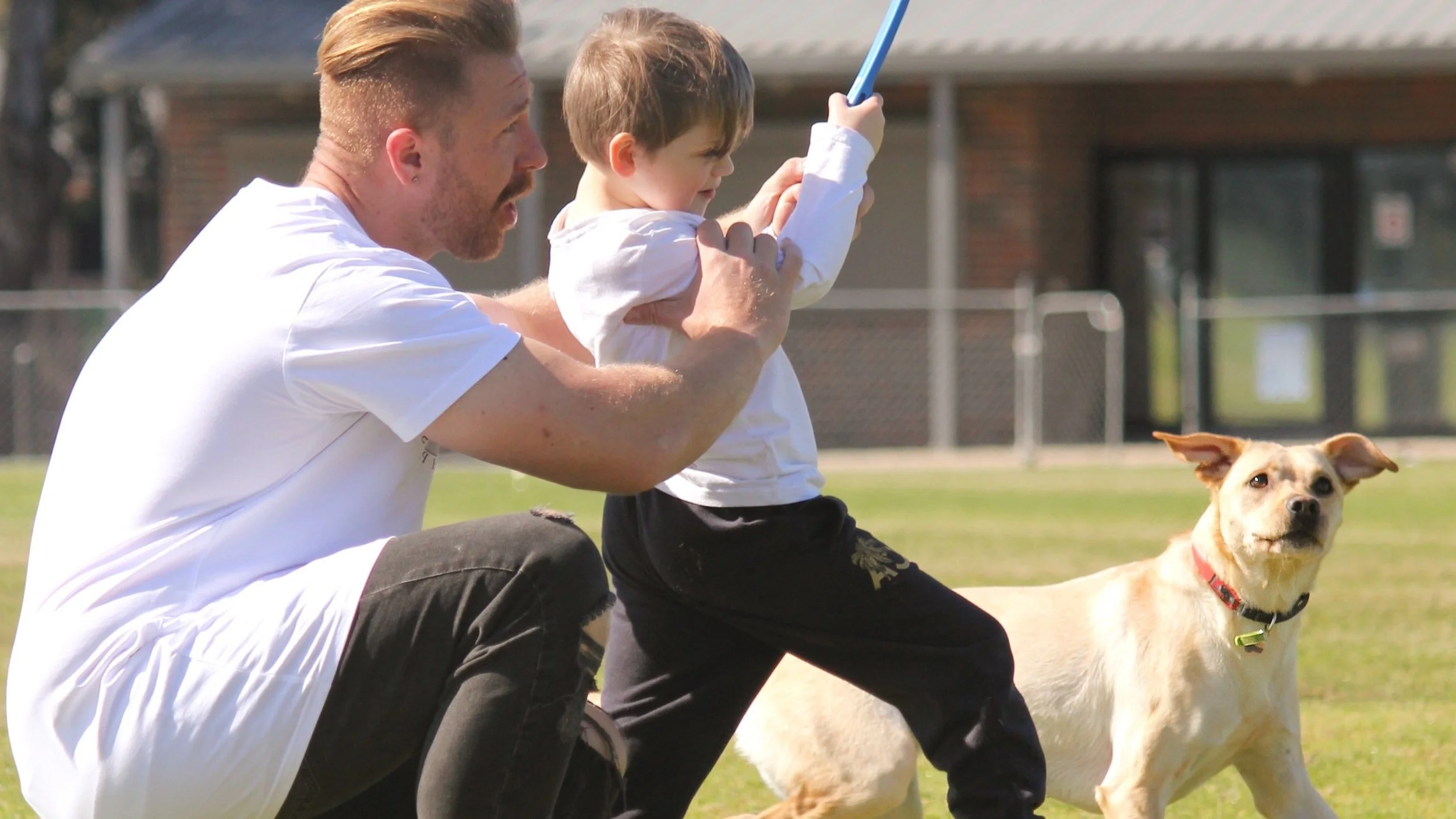

WHAT IS ANIMAL ASSISTED THERAPY?
Animal Assisted Therapy (AAT) has been growing in popularity over the last few decades as it can have a positive impact on wellbeing.
The goal of AAT is to improve and promote engagement and motivation through the inclusion of a trained dog in therapy sessions to support social, emotional, cognitive and physical functioning and is based on the principle that animals provide non-judgemental emotional support. Advocates state that a therapist who brings along a therapy dog can also increase the rapport between the client and the therapist.
The involvement of a trained dog in occupational therapy has been found to decrease physiological arousal and stress, and provide motivation to engage in social interactions, play and functional tasks.
Animal Assisted Therapy facilitated by an occupational therapist may work towards individual goals related to:
• Social participation and communication skills
• Emotion and sensory regulation
• Self-care and activities of daily living
• Fine motor, gross motor, and coordination skills.
Sessions can be clinic or community-based to support individuals to develop school and work-based skills, increase community engagement,
and build confidence catching public transport.
Usually Animal Assisted Therapy will involve dogs as support animals, but it can also include horses, guinea pigs, cats, fish, ferrets, birds, farm animals like chickens, alpacas, donkeys and goats or even zoo animals.
Animal-assisted therapy is rooted in the bond that can develop between people and animals. Animals can provide a sense of calm, comfort, or safety and divert attention away from a stressful situation and toward one that provides pleasure.
Animals can help combat loneliness and boost social support, both through interactions with the animal and interactions that involve other people, it can also lead people to get more physical activity than they would otherwise.
Advocates of animal-assisted therapy say that developing a bond with an animal can help people develop a better sense of self-worth and trust, stabilise their emotions, and improve their communication, self-regulation, and socialisation skills.
WHO IS ANIMAL ASSISTED THERAPY FOR?
Most studies and programs have so far focused on the benefit of Animal Assisted Therapy for autistic people,
particularly children, however people of all different ages and with a range of disabilities or chronic illnesses may also benefit.
This could include people with:
Attention Deficit Hyperactivity Disorder (ADHD)
Global Development Delay
Cerebral Palsy
Neurological conditions such as Multiple Sclerosis
Depression
Schizophrenia
Anxiety
Post Traumatic Stress Disorder
For people with disabilities, AAT could be used to build school and work based skills, self regulation, social interaction and community engagement, fine and gross motor skills or confidence catching public transport. It can also develop a person’s sense of self worth, ability to trust and ability to communicate.
Having an animal involved in the therapy can help to achieve a clients development by reducing the stress of the situation for the person receiving therapy and by providing motivation to engage in tasks - whether that task is learning to cook a meal or participating in a social interaction.
Animal assisted therapy is considered different to having an assistance animal at home, such as a service dog, because it involves ongoing therapy and is linked with other methods of therapy. Pets and companion animals which live with people with disability are also not considered part of Animal Assisted Therapy, as they don't work in the same way with the therapist.
Funding for Animal Assisted Therapy may be available to you under the NDIS if you have a goal in your NDIS plan related to social participation and communication skills, emotional and sensory regulation, self-care and daily living activities, fine motor, gross motor, and/or coordination skills.
For you to be able to receive NDIS funding for Animal Assisted Therapy though, it must be considered a 'reasonable and necessary' support.
Find out more information here.
ARE YOU READY TO TAKE THE LEAP INTO ANIMAL ASSISTED THERAPY?
Contact us now to see how we can help you!


